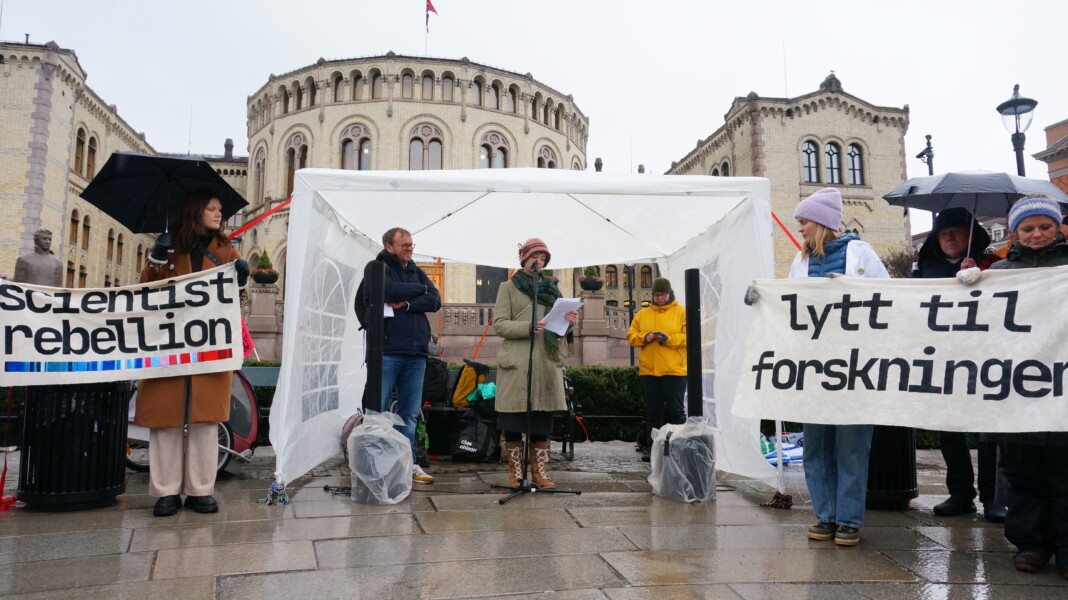
Av Julia Loge
Publisert 18. april 2023 kl. 15:58
Scientist Rebellion is an international network of academics that uses civil disobedience in its efforts to highlight the climate crisis. It is a sister organisation of Extinction Rebellion and has been active since 2020.
PhD candidate Myranda Murray is a member of the Scientist Rebellion group at NTNU. She says that one of their goals is to challenge the norm that researchers should be neutral: ‘We thought that if we just presented our research-based warnings, people would act. We need to make academia behave in a way that reflects the critical situation we’re in.’
Yet even researchers who used to be involved in the environmental movement doubt the efficacy of Scientist Rebellion’s tactics. Professor Elin Boasson at the University of Oslo has also worked on the UN climate report. She thinks that academics have enough authority to make their voices heard and that civil disobedience is most effective when used on top of an ongoing political process, citing the case of Fosen wind farm.
Last autumn the Western University of Applied Sciences (HVL) realised that an article written by a former PhD candidate could be traced to a paper mill – an organisation that sells authorship of fraudulent research papers. In the year he was at HVL, the researcher produced about 40 articles and continues to cite HVL as his employer. None were written in collaboration with HVL employees or under supervision, and the university was unaware of all these articles before being contacted by Khrono. HVL has now asked the respective journals to remove them because the university cannot vouch for their quality.
Vice-dean for research Lise Bjørkhaug Gundersen says that despite the focus on research ethics, this matter shows that even more should be done. To ensure quality, it is crucial that researchers collaborate with one other. The researcher’s network is also important. ‘They shouldn’t just work by themselves without being an integrated part of their specialist environment,’ she says.
International cooperation in research and higher education has become a minefield in recent years, raising questions over what research can be shared and with whom.
The Directorate for Higher Education and Skills and the Research Council of Norway now propose the creation of a national contact point to advise the knowledge sector with regard to national security, thus making it easier to cooperate internationally. Among other things, it would give advice based on classified information and produce guidelines outlining the challenges but also the positive sides of international collaboration.
In 2011, Professors Claire Glenton of the Western Norway University of Applied Sciences and Benedicte Carlsen of the University of Bergen published an academic article on the average number of focus groups used in research.
When they began to read the many articles that cited it, however, they realised that half of them misrepresented their findings. People had apparently googled something and found a number in the abstract, without checking the actual paper. The professors’ subsequent article on researchers’ quotation errors has few citations. They now fear a snowball effect of authors misquoting each other.